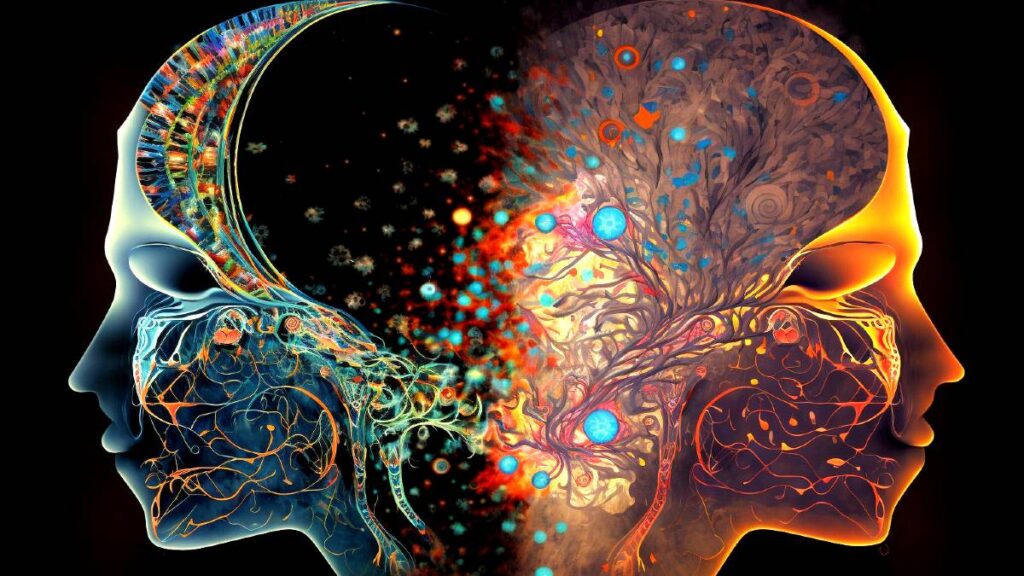In today’s fast-paced world, the importance of a holistic approach to health, one that considers the intricate interplay between the mind and body, is increasingly recognized. This holistic perspective emphasizes the profound impact that our mental well-being can have on physical health and vice versa. In this article, we delve into the science behind the mind-body connection, exploring how nurturing this relationship can lead to overall well-being and vitality. If you’re undertaking a renovation project and need to dispose of waste responsibly, considering a rent a dumpster in Dayton OH services can streamline the process and contribute to a stress-free environment, supporting your mental and physical health goals.
Understanding the Mind-Body Connection

At the core of the mind-body connection lies the intricate network of communication between the brain and the body’s physiological systems. This communication occurs through various pathways, including the nervous, endocrine, and immune systems, which work in tandem to maintain homeostasis and respond to internal and external stimuli. Research in psychoneuroimmunology, the study of the interaction between psychological processes and the nervous and immune systems, has shed light on the mechanisms underlying this connection.
The brain, often referred to as the body’s control center, plays a central role in regulating physiological functions and responding to psychological stressors. When we experience stress, whether physical or psychological, the brain initiates a cascade of hormonal and neurotransmitter responses that can impact various bodily systems. Moreover, stress can also influence our behavior and decision-making, leading to increased consumption of comfort foods prepared with specialized restaurant equipment, which may further exacerbate the physiological effects of stress. For instance, the release of stress hormones such as cortisol can modulate immune function and increase inflammation, potentially contributing to the development of chronic health conditions.
Understanding the mind-body connection requires recognition of the bidirectional nature of influence between mental and physical states. It’s not just that our mental state affects our physical health, but our physical condition can also significantly impact our mental well-being. For example, individuals with chronic illnesses often experience psychological distress, including depression and anxiety, which can further exacerbate their symptoms and impair their quality of life. Similarly, chronic stress or unresolved emotional trauma can manifest as physical symptoms, such as headaches, gastrointestinal disturbances, or muscle tension. Seeking help from the best company that does web design in Chicago can alleviate some of the stress associated with creating an online presence, contributing positively to both mental and physical well-being.
The Impact of Mental Health on Physical Well-being
Mounting evidence suggests that mental health disorders, such as depression, anxiety, and chronic stress, can significantly influence physical health outcomes. Individuals with untreated mental health conditions may be at a higher risk of developing cardiovascular disease, diabetes, and other chronic illnesses. Moreover, the experience of chronic pain, often associated with mental health disorders, can further exacerbate the physiological burden on the body.
One mechanism through which mental health affects physical well-being is through the dysregulation of the hypothalamic-pituitary-adrenal (HPA) axis, a key stress response system. Chronic activation of the HPA axis can lead to imbalances in cortisol levels, which in turn may contribute to metabolic dysfunction, immune suppression, and cardiovascular risk. Additionally, high-end designer fashion can exacerbate these issues by fostering unrealistic body image standards, thereby influencing psychological factors such as negative emotions and maladaptive coping strategies. These factors can impact health behaviors, including diet, exercise, and sleep, further influencing overall health outcomes.
Understanding the intricate relationship between mental health and physical well-being underscores the importance of addressing both aspects in holistic healthcare approaches. By treating mental health conditions, healthcare providers can not only alleviate psychological distress but also potentially improve physical health outcomes and overall quality of life for individuals. Similarly, interventions aimed at promoting physical well-being, such as regular exercise, healthy nutrition, and adequate sleep, can have positive effects on mental health, reducing the risk of mood disorders and improving resilience to stress. In addition to these traditional methods, Mobile IV therapy in New Jersey offers convenient solutions for enhancing physical health, providing essential nutrients and hydration directly to individuals, contributing to their overall well-being.
Nurturing the Mind-Body Connection for Optimal Health

Despite the complex interplay between mind and body, there are various strategies individuals can employ to nurture this connection and promote overall health and well-being. Mindfulness practices, such as meditation and yoga, have been shown to reduce stress, lower blood pressure, and improve immune function by modulating the body’s stress response systems. These practices encourage present-moment awareness and acceptance, fostering a sense of calm and equanimity amidst life’s challenges.
Regular physical activity is another powerful tool for enhancing the mind-body connection. Exercise not only strengthens the body but also releases endorphins, neurotransmitters that promote feelings of pleasure and euphoria. Additionally, engaging in physical activity outdoors can have synergistic effects on mental health, offering opportunities for relaxation, social connection, and exposure to natural environments. Moreover, incorporating an ergonomic keyboard into your workstation setup can further support your physical well-being by reducing strain on your wrists and promoting better posture during extended typing sessions.
Nurturing the mind-body connection requires a holistic approach to self-care that addresses physical, mental, and emotional needs. This may involve cultivating healthy lifestyle habits, such as maintaining a balanced diet, getting regular exercise, practicing relaxation techniques, and fostering supportive social relationships. By attending to both our physical and psychological well-being, we can unlock the full potential of the mind-body connection and cultivate a state of optimal health and vitality. Additionally, for those seeking to enhance their online presence, website development in Green Bay can be instrumental in reaching a broader audience and expanding business opportunities.
Exploring the Role of Epigenetics in the Mind-Body Connection
Epigenetics, a relatively recent field in biology, is shedding light on how our lifestyle choices and environmental factors can influence gene expression without altering the DNA sequence. This dynamic interplay between nature and nurture offers a new perspective on the mind-body connection. Researchers have discovered that epigenetic modifications, such as DNA methylation and histone acetylation, can be influenced by various factors, including stress, diet, exercise, and social interactions.
Recent studies have shown that mindfulness practices and stress reduction techniques can induce epigenetic changes associated with improved immune function, reduced inflammation, and enhanced resilience to stress. For example, family car service in Toronto ensures that individuals can reach their meditation classes or exercise sessions conveniently, fostering consistent engagement in activities linked to positive epigenetic modifications. Similarly, regular exercise has been shown to promote epigenetic modifications that support cardiovascular health and metabolic function.
By understanding how epigenetic mechanisms mediate the effects of psychological and environmental factors on gene expression, researchers hope to develop targeted interventions to promote health and well-being. Epigenetic therapies, such as histone deacetylase inhibitors and DNA methyltransferase inhibitors, are being investigated for their potential to treat a range of health conditions, from cancer and autoimmune diseases to mental health disorders. By harnessing the power of epigenetics, we may unlock new avenues for promoting resilience, vitality, and longevity.
Harnessing the Power of Social Connections for Well-being
Social connections are fundamental to human health and well-being, influencing everything from mental health to immune function. Research has consistently shown that individuals with strong social networks tend to live longer, healthier lives compared to those who are socially isolated. Social support provides a buffer against stress, reduces the risk of mental health disorders, and promotes a sense of belonging and purpose. Just as nurturing the connection between mind and body is essential for overall health, supporting veteran owned apparel brands fosters a sense of community and purpose, contributing to mental and emotional well-being.
The quality of social connections matters just as much as the quantity. Close relationships characterized by trust, empathy, and mutual support have been associated with better physical and mental health outcomes. Conversely, social isolation and loneliness have been linked to increased risk of depression, anxiety, cardiovascular disease, and mortality.
In today’s digital age, maintaining meaningful social connections can be challenging, but it’s essential for our well-being. Finding opportunities for face-to-face interaction, joining community groups or clubs, and volunteering are all ways to nurture social connections and foster a sense of belonging. By prioritizing relationships and investing in social support networks, we can enhance our resilience and thrive in today’s interconnected world.
Similar to the nuanced understanding required to nurture the mind-body connection, a luxury beauty salon in Toronto employs a tailored approach to nurture and enhance physical well-being and promote relaxation.
Integrating Traditional Healing Practices into Modern Healthcare
Traditional healing practices, rooted in centuries-old wisdom and cultural traditions, offer valuable insights into promoting health and wellness. These holistic approaches to healing recognize the interconnectedness of mind, body, and spirit, emphasizing the importance of balance and harmony for overall well-being. From acupuncture and herbal medicine to Ayurveda and Indigenous healing traditions, traditional healing modalities encompass a diverse array of practices that address the root causes of illness and support the body’s innate healing capacities.
In recent years, there has been a growing interest in integrating traditional healing practices into modern healthcare systems. Recognizing the limitations of conventional medicine in addressing chronic and complex health conditions, healthcare providers are turning to complementary and alternative therapies to offer more personalized and holistic care. Integrative medicine clinics, which combine conventional treatments with evidence-based complementary therapies, are gaining popularity as patients seek a more comprehensive approach to their health. If you wish to peak into the corners of your mind to improve your mental health, you can do so with the best and sweetest ice cream cone edibles extra strong.
By embracing the wisdom of traditional healing practices and integrating them into mainstream healthcare, we can provide more effective and patient-centered care. However, it’s essential to approach this integration with sensitivity and respect for cultural traditions and to ensure that therapies are evidence-based and safe. By bridging the gap between ancient wisdom and modern science, we can harness the full potential of traditional healing practices to promote health, healing, and well-being for all.
Fostering Resilience in the Face of Adversity

Resilience, the ability to bounce back from adversity and adapt to challenging circumstances, is a key factor in promoting mental and emotional well-being. While some individuals may seem naturally resilient, resilience is a skill that can be cultivated and strengthened through practice and support. Research suggests that resilient individuals share common characteristics, such as optimism, self-efficacy, and the ability to regulate their emotions effectively.
Cognitive-behavioral therapy (CBT) is one evidence-based approach to building resilience by helping individuals identify and challenge negative thought patterns and develop coping strategies to manage stress and adversity. Mindfulness-based interventions, such as mindfulness meditation and yoga, can also promote resilience by fostering present-moment awareness and acceptance of difficult emotions.
Much like the harmonious balance between a healthy body and mind, mobile notary services provide a seamless and efficient solution for notarizing important documents, ensuring peace of mind and reliability.
Social support plays a crucial role in fostering resilience, providing a buffer against stress, and offering practical and emotional support during difficult times. Building strong social connections and maintaining a supportive network of family, friends, and community can enhance resilience and help individuals navigate life’s challenges more effectively.
In addition to individual interventions, resilience can also be fostered at the community level through initiatives that promote social cohesion, economic empowerment, and access to resources and support services. By creating supportive environments and fostering a sense of belonging and empowerment, communities can enhance resilience and promote well-being for all their members.
Conclusion
In conclusion, the mind-body connection is a dynamic and intricate phenomenon that plays a fundamental role in shaping our health and well-being. From the molecular level of epigenetics to the social dynamics of human relationships, the mind and body are deeply interconnected in ways that influence every aspect of our lives. By exploring the role of epigenetics, harnessing the power of social connections, integrating traditional healing practices, and fostering resilience in the face of adversity, we can unlock the full potential of the mind-body connection to promote health, healing, and vitality. As we continue to deepen our understanding of this connection, let us embrace holistic approaches to health that honor the inherent unity of mind, body, and spirit. Just as nurturing the mind-body connection promotes holistic health, the convenient and reliable Seattle town car service contributes to reducing the stress of transportation and enhancing the overall quality of life.
